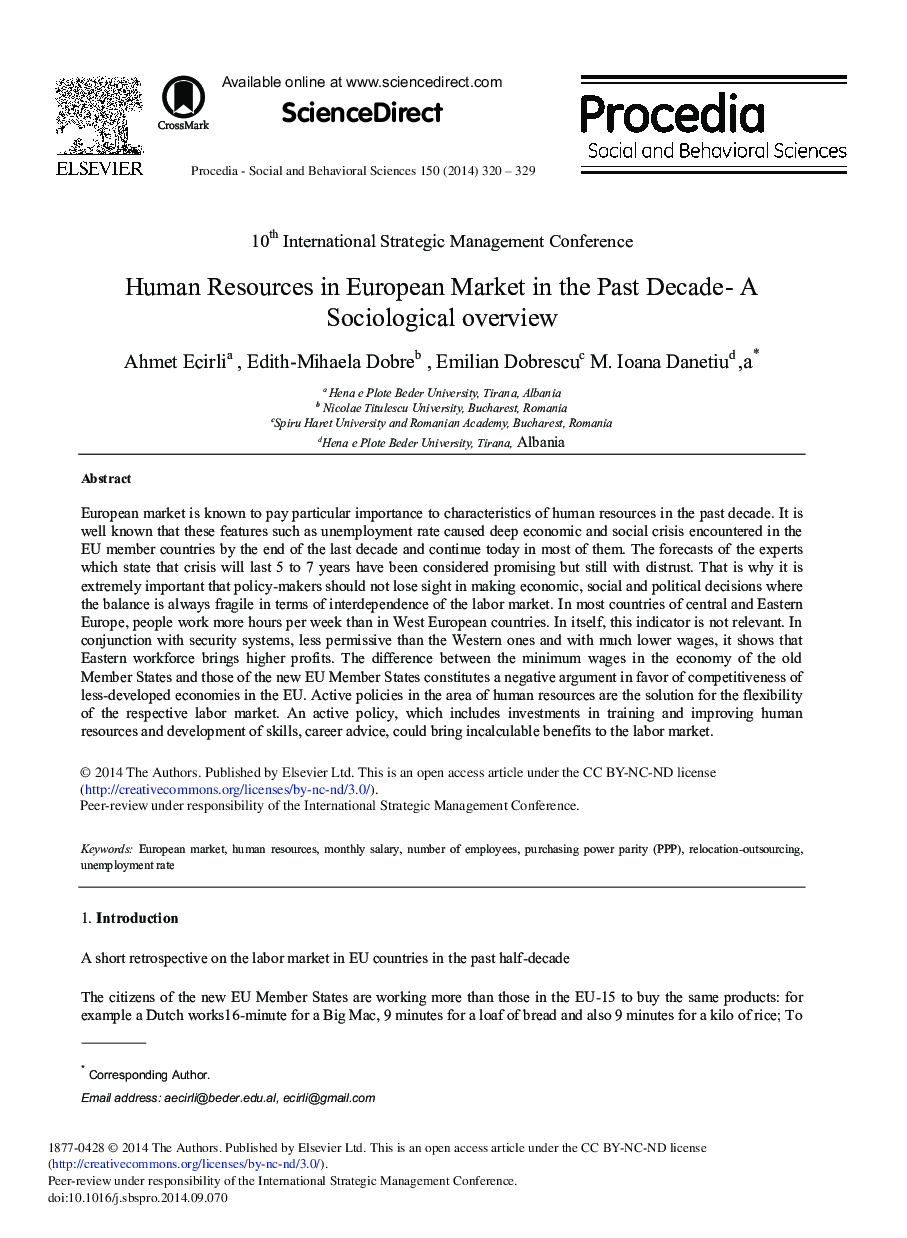| Article ID | Journal | Published Year | Pages | File Type |
|---|---|---|---|---|
| 1113333 | Procedia - Social and Behavioral Sciences | 2014 | 10 Pages |
European market is known to pay particular importance to characteristics of human resources in the past decade. It is well known that these features such as unemployment rate caused deep economic and social crisis encountered in the EU member countries by the end of the last decade and continue today in most of them. The forecasts of the experts which state that crisis will last 5 to 7 years have been considered promising but still with distrust. That is why it is extremely important that policy-makers should not lose sight in making economic, social and political decisions where the balance is always fragile in terms of interdependence of the labor market. In most countries of central and Eastern Europe, people work more hours per week than in West European countries. In itself, this indicator is not relevant. In conjunction with security systems, less permissive than the Western ones and with much lower wages, it shows that Eastern workforce brings higher profits. The difference between the minimum wages in the economy of the old Member States and those of the new EU Member States constitutes a negative argument in favor of competitiveness of less-developed economies in the EU. Active policies in the area of human resources are the solution for the flexibility of the respective labor market. An active policy, which includes investments in training and improving human resources and development of skills, career advice, could bring incalculable benefits to the labor market.
